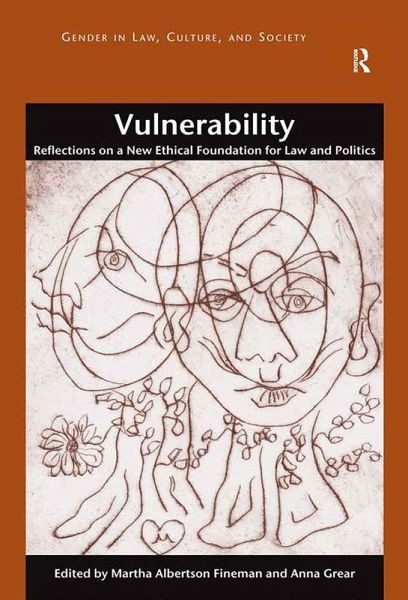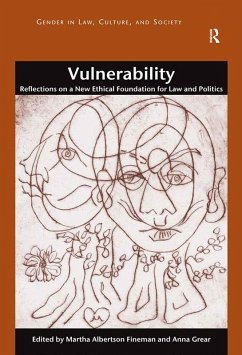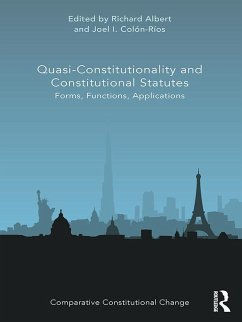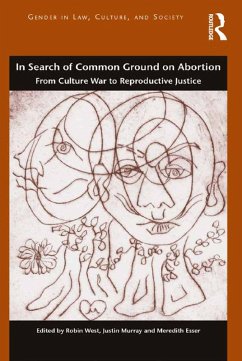
Vulnerability (eBook, ePUB)
Reflections on a New Ethical Foundation for Law and Politics
Redaktion: Fineman, Martha Albertson; Grear, Anna
Versandkostenfrei!
Sofort per Download lieferbar
55,95 €
inkl. MwSt.
Weitere Ausgaben:

PAYBACK Punkte
28 °P sammeln!
Martha Albertson Fineman's earlier work developed a theory of inevitable and derivative dependencies as a way of problematizing the core assumptions underlying the 'autonomous' subject of liberal law and politics in the context of US equality discourse. Her 'vulnerability thesis' represents the evolution of that earlier work and situates human vulnerability as a critical heuristic for exploring alternative legal and political foundations. This book draws together major British and American scholars who present different perspectives on the concept of vulnerability and Fineman's 'vulnerability ...
Martha Albertson Fineman's earlier work developed a theory of inevitable and derivative dependencies as a way of problematizing the core assumptions underlying the 'autonomous' subject of liberal law and politics in the context of US equality discourse. Her 'vulnerability thesis' represents the evolution of that earlier work and situates human vulnerability as a critical heuristic for exploring alternative legal and political foundations. This book draws together major British and American scholars who present different perspectives on the concept of vulnerability and Fineman's 'vulnerability thesis'. The contributors include scholars who have thought about vulnerability in different ways and contexts prior to encountering Fineman's work, as well as those for whom Fineman's work provided an introduction to thinking through a vulnerability lens. This collection demonstrates the broad and intellectually exciting potential of vulnerability as a theoretical foundation for legal and political engagements with a range of urgent contemporary challenges. Exploring ways in which vulnerability might provide a new ethical foundation for law and politics, the book will be of interest to the general reader, as well as academics and students in fields such as jurisprudence, philosophy, legal theory, political theory, feminist theory, and ethics.
Dieser Download kann aus rechtlichen Gründen nur mit Rechnungsadresse in A, B, BG, CY, CZ, D, DK, EW, E, FIN, F, GR, HR, H, IRL, I, LT, L, LR, M, NL, PL, P, R, S, SLO, SK ausgeliefert werden.













